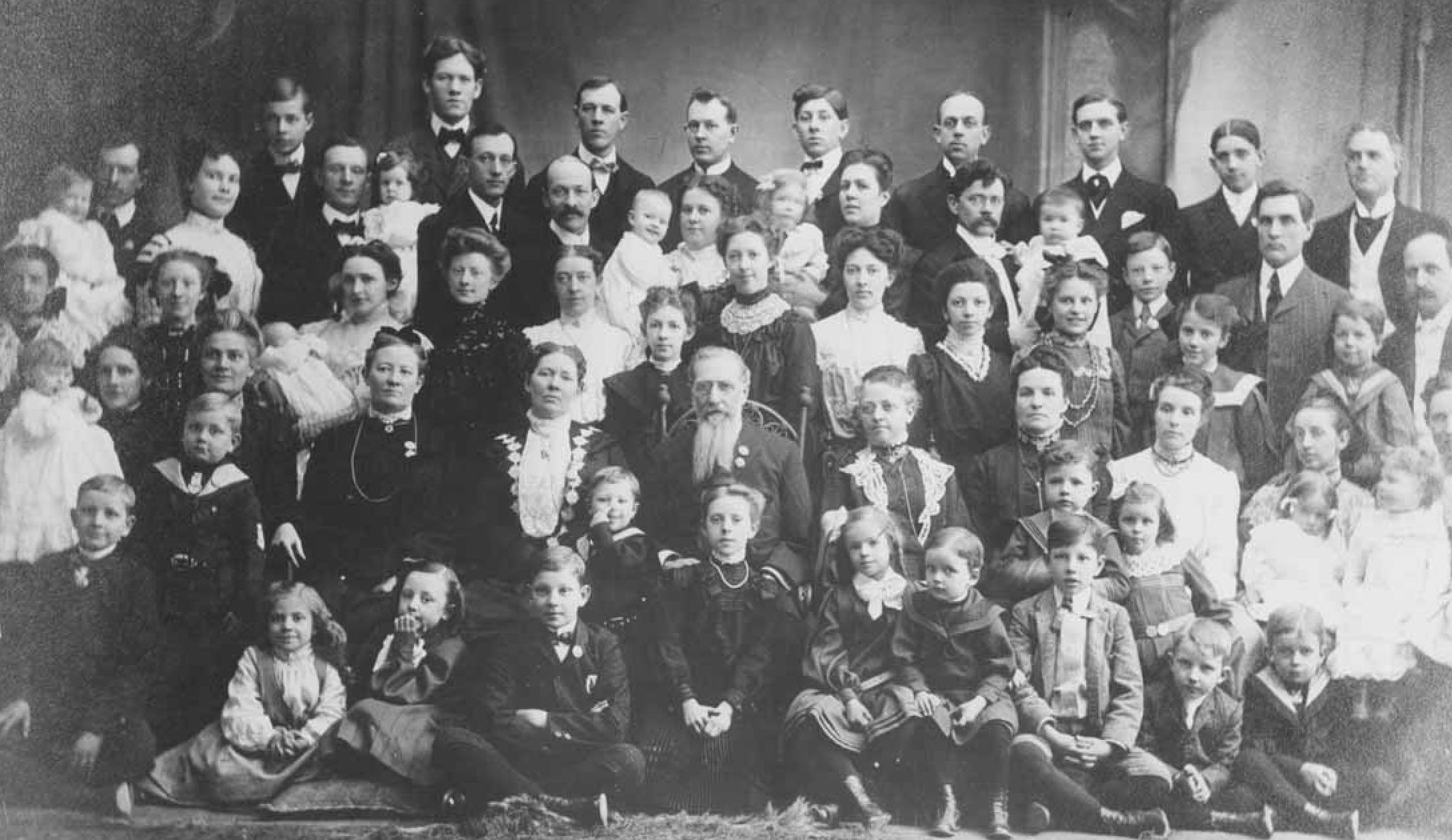
Joseph F. Smith: Polygamous Family
Any relationship construct has the ability to create an oppressive environment. Whether the construct identifies as monogamous, polyamorous, polygamous, polyandrous or any other relational form, abuse can exist within each and every one of these relationships.
Monogamy represents the conventional form of relationship; alternative forms are generally undervalued, misunderstood, or rejected by the majority. The disapproval of these relational minorities' only increases when instances of abuse exist within the multi-partner relationships, creating a greater separation between monogamy and alternative constructs.
In season three of Sister Wives, a reality show of an exemplary, loving polygamist family, addressed this exact social issue. Three of Kody Brown's (the polygamist father) teenagers -- Logan, Aspyn, and Madison decide to visit an organization called Holding out HELP which helps individuals who have experienced abuse, incest, and trauma within polygamist cults.
Kolleen, Nicole, Steven and Suzanne are four young individuals who fled extremist polygamist settings - Kingston and Warren Jeff's FLDS. Within both polygamist sects, child marriage, incest, and abuse were present. Kolleen, who was part of the Kingston sect, mentions that the earliest memory she had of her biological father, the leader of the polygamist sect, is of him beating her.
Within oppressive polygamist cults, women and children obey their appointed male polygamist master. The militant, authoritative leadership of these polygamist men destabilizes and traumatizes the lives of numerous women and children through sexual, emotional, religious, and economic abuse.
As shown on Sister Wives, the four teens residing at Holding out Help met up with the Brown Family to witness a better example of a polygamist family. By the end of their visit, the teens who escaped their abusive situations, found the Brown family to be a healthier and more positive family unit than their own. Despite their approval of the Brown family, all of the teens still stated they wouldn't be part of a polygamous construct again.
The Kingston and Warren Jeff FLDS are polygamist cults that utilize their patriarchal roles as a way to abuse and damage their families. In Sister Wives, Kody Brown is still considered the patriarch of the family; yet he believes this role is meant to love, protect, and value each of his wives and children.
The morality of having multiple partners, specifically where there is one man for multiple women, will always be in question. One recurring statement that is heard around these relational issues is: "It's their choice."
This can prove problematic given women and children involved in abusive situations feel as though it's their choice because of their extreme immersion within the situation.
Generally, within these types of oppressive dynamics, choice is illusory. How can people understand the implications of their choice if they are prohibited from exploring other options? Although the Brown family exhibits a healthier form of the polygamous life, there are still apparent detriments suffered by the wives.
Because plural marriage is often linked to a faith-based system, these issues get dismissed based on religious grounds. In other words, the jealousy one wife feels must be dealt with through her relationship with God as it is believed God ordained this type of union.
This poses the question: Should the public accept the faith and choice of a relational dynamic if mental, relational, and personal health is compromised? As a proponent of the freedom to choose alternative forms of relationship, the expectation is that all parties involved find liberation through addressing fundamental matters around equality and agency; free from oppressive religious and ideological systems.
